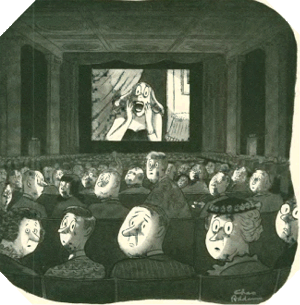 |
| "the Auk" |
This assessment of “the Auk” arguably may be
a tad unfair, his being perhaps a hapless victim of circumstance with a goodly dose of elitist military politics thrown in for good measure. But his checkered military career was also encumbered beforehand by questionable command adroitness in Denmark against the Germans and then dogged afterwards by meddlesome intrigues in his various commands in India. Nonetheless, he certainly was the man of the moment at a crucial time in the last world war and is saddled in history as being a key player who might well have lost everything for the Allies had he continued in his command, and the 3rd Reich's boast that it would endure for a 1000 years (instead of the twelve it did) might well still be a reality today.
In retrospect this is not just idle speculation. France had just crumbled in no time flat under an unparalleled German military blitzkrieg onslaught, suddenly leaving North Africa and the Suez Canal, the gateway to the East, a vulnerable target. After all, Italy’s Mussolini (1883-1945) was already hellbent to dislodge Britain’s hold on Egypt, but was hardly a match against the clearly superior British military in the area. But now with Germany’s insertion of Rommel (1891-1944) in the mix, undeniably one of its most competent German commanders, things were becoming dire indeed for the allies with the imminent prospect of a German/Italian victory in North Africa and particularly the complete domination of vast petroleum resources to fuel Axis aggression campaigns already well advanced both east and west.
a tad unfair, his being perhaps a hapless victim of circumstance with a goodly dose of elitist military politics thrown in for good measure. But his checkered military career was also encumbered beforehand by questionable command adroitness in Denmark against the Germans and then dogged afterwards by meddlesome intrigues in his various commands in India. Nonetheless, he certainly was the man of the moment at a crucial time in the last world war and is saddled in history as being a key player who might well have lost everything for the Allies had he continued in his command, and the 3rd Reich's boast that it would endure for a 1000 years (instead of the twelve it did) might well still be a reality today.
 |
| The desert fox |
The remarkable photo below is as real as it is unposed, capturing a pivotal moment as poignant as any in war history. The backdrop is very close to the North African battlefront at an instant when in WW2 everything before which was dismal for the Allies changed to everything that was hopeful and eventually victorious. Churchill, in the foreground chomping his perennial cigar, is in the process of sacking the Auk who appears nearby with clenched fist and intense bearing seemingly in some kind of confrontation with Dominion commanders, most notably the leader of the Australian forces facing him. The Auk was definitely suffering a crisis of leadership at the time, having lost the confidence of Dominion commanders.
 |
| Cigar smoking permitted |
A personal drama being played out behind the scenes makes this photo all the more amazing. Churchill at 67 had just been at the White House visiting with FDR only some six months before when he experienced pains in his chest diagnosed by his personal doctor as a mild heart attack. The doctor, a close family friend, while providing critical care decided to say nothing about the seriousness of his condition, even to Churchill himself. The obvious treatment would have been six weeks of total rest, which would have severely complicated the Washington mission and announced to the world that Britain's leader was an invalid with a crippled heart and a doubtful future. Now here he is in the scorching desert heat having just flown to North Africa on a very arduous and dangerous circuitous route over the Mediteranian without escort in a flying boat airliner, neither comfortable nor very safe. The aircraft was not pressurised, and en route to Cairo in 1942, Churchill insisted that his oxygen mask be adapted to accommodate a cigar. Years later Churchill, reflecting on the events of the time, commented rather graciously that removing Auk was "like killing a magnificent stag".
 |
| Marrakesh |
Not only did the Auk lose in war, he also lost in love. His wife ran off with a British RAF commander at the end of the war in 1946, and he himself retired shortly after from the military. He ended up in Marrakesh (North Africa) where he lived out the rest of his life, quietly and alone in a modest flat, taking his morning coffee at the La Renaissance Café in the new part of the city where he was known simply as "le marechal". Ironically it was the same place Churchill convalesced for some weeks after he collapsed at Eisenhower's (1890-1969) headquarters in nearby Tunisia in late 1943 with a bout of pneumonia. Auk faded away an old soldier at the grand age of 96, long outliving his various "adversaries" including Churchill, Montgomery and the RAF commander who ran away with his wife.


